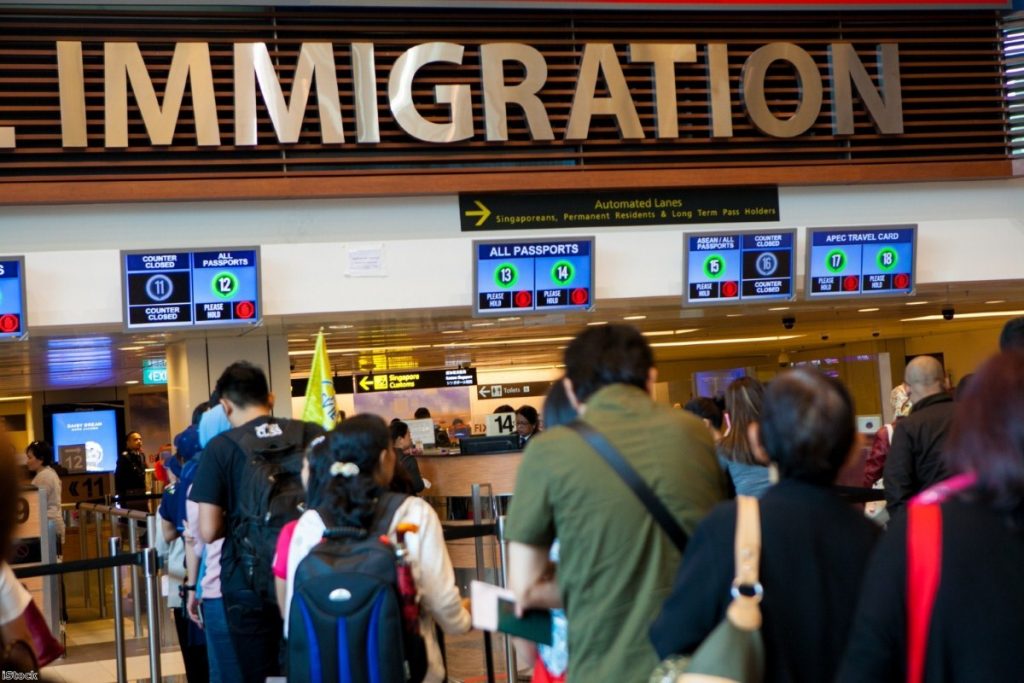A wave of anti-immigrant sentiment is sweeping the world, with countries in Europe, Africa, Asia and the Americas fearing a negative impact from newcomers.
The findings come in a major new Ipsos Mori survey across 22 countries: Argentina, Australia, Belgium, Brazil, Canada, France, Britain, Germany, Hungary, India, Italy, Japan, Mexico, Poland, Russia, Saudi Arabia, South Africa, South Korea, Spain, Sweden, Turkey and the United States.
In all the countries surveyed, not one had a majority with a positive impression of immigration.
“Immigration is a global issue, with very few countries entirely at ease with current levels, control and the impact of the mass movement of people,” Bobby Duffy, managing director of Ipsos Mori’s Social Research Institute, said.


The findings suggest the anxiety around immigration expressed during the EU referendum is not restricted to Britain. In actual fact, Brits' views on immigration hover around the middle of the table.
Startlingly, pro-immigration sentiment is actually increasing in the UK, with 35% of Brits likely to say immigration is good for the country (up from 28% a year ago and 19% in 2011), while 49% say there have been too many immigrants to the UK (down from 60% a year ago and 71% in 2011).

Britain remains one of the countries most worried about the pressure placed on public services by immigration, but even this number is rapidly coming down. Fifty-nine per cent say immigrants put pressure on public services, down from 68% a year ago and from 76% in 2011.
“Britain has in fact become more positive about many aspects of immigration,” Duffy said.
“This might seem surprising given that the desire to reduce immigration was undoubtedly a key reason for the Brexit vote.
“The more positive shift in views reflects what we’ve seen in other studies: the referendum has polarised opinion, with an increasing minority saying we’re focusing on immigration too much.”
In the vast majority of countries, the public is increasingly critical of immigration and perceives a significant increase in it, with 78% saying the level has risen over the last five years. In Turkey, Sweden, Germany, and South Africa, nine out of ten or more people believe immigration has increased.
On average, more people say immigration has generally had a negative (45%) rather than positive (20%) effect on their country. A strong majority in Turkey, Italy, Russia, Hungary, France and Belgium say immigration has had a negative impact.
But the countries with the most sympathetic views towards immigrants make surprising reading. Saudi Arabia is particularly pro-immigration, as is India.
They are unusual, however. Half of the 22 countries say they have too many immigrants, while 46% say immigration is changing the country in ways they don’t like. Turkey, Italy, Russia and Belgium are among the most critical.
Japan, which is typically considered highly critical of immigration, is least likely to say there are too many immigrants, with just 12% selecting this option. Brazilians are the most comfortable with how immigration is changing their country, with just 23% saying otherwise.

Brits are unusual in that they tend to accept that immigration has done good things for the economy, as do countries like Saudi Arabia, India, Canada and Australia. But globally, just 28% of people think it has been good for their country’s economy, with 37% disagreeing.
Countries like Turkey, Hungary, Russia, Italy and France have the most negative impression of immigration’s economic effects.
In most countries a majority believe immigration is placing too much pressure on public services. Half the public in the countries surveyed believe it has placed too much pressure on services, with just 18% disagreeing.
Even though Turkey was used by the Leave campaign to raise fears about mass immigration during the Brexit referendum, it’s own population is actually becoming extremely critical of immigration. Concern about the impact of immigration on public services is at 72% in the country, up from 45% five years ago.
In the US and France, where populist hard-right leaders are poised to make a bid for power, 60% of people agree. Sweden – typically considered a bastion of progressive sentiment – has seen a 15-point increase in concerns about immigrant pressure on public services in the last five years to 55%.
Most people don’t even believe immigration has made their country a more interesting place to live, with just 29% choosing this option. The differences here are particularly stark however, with Australia, Great Britain, Saudi Arabia, Canada, India and the US the most likely to be positive, and Russia, Hungary, Japan and Italy most likely to be negative.
The global hardening of views even applies to refugees, with a substantial minority (38%) wanting their country to close its doors to them altogether.
Most countries have a majority who still want the borders open, but Turkey, India and Hungary have a majority demanding they are closed.
Most people (61%) believe terrorists are hiding among refugees, while a majority in most countries believe refugees are really economic migrants. Just 41% think their country can successfully integrate refugees.
As in the Brexit debate, there is a strong correlation between education and support for immigration. The more highly educated are more likely to say it has a positive impact and that it is good for the economy, and less likely to say there are too many immigrants in their country.












